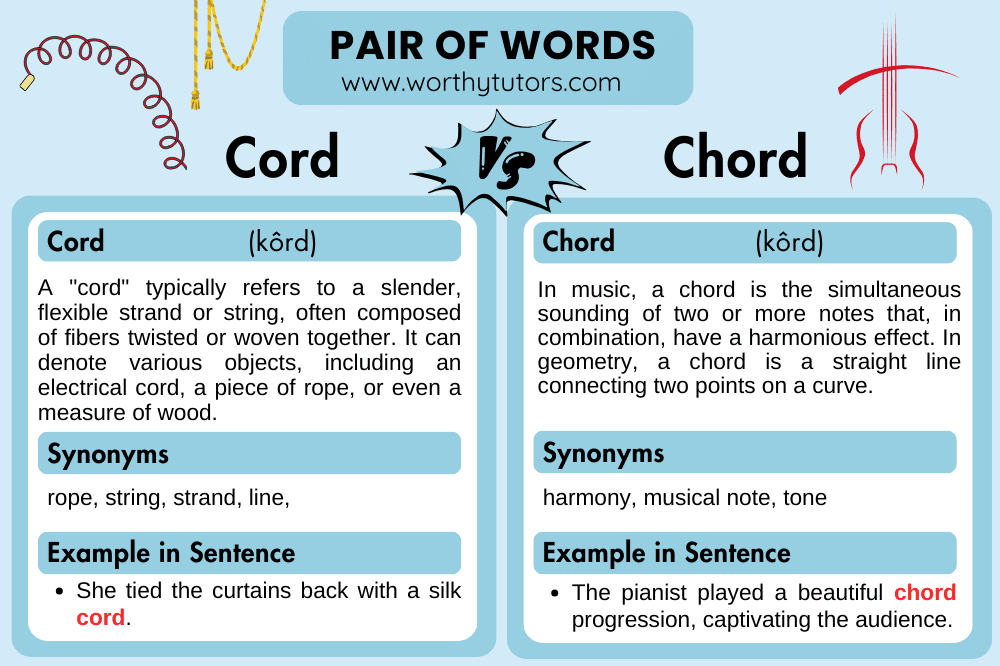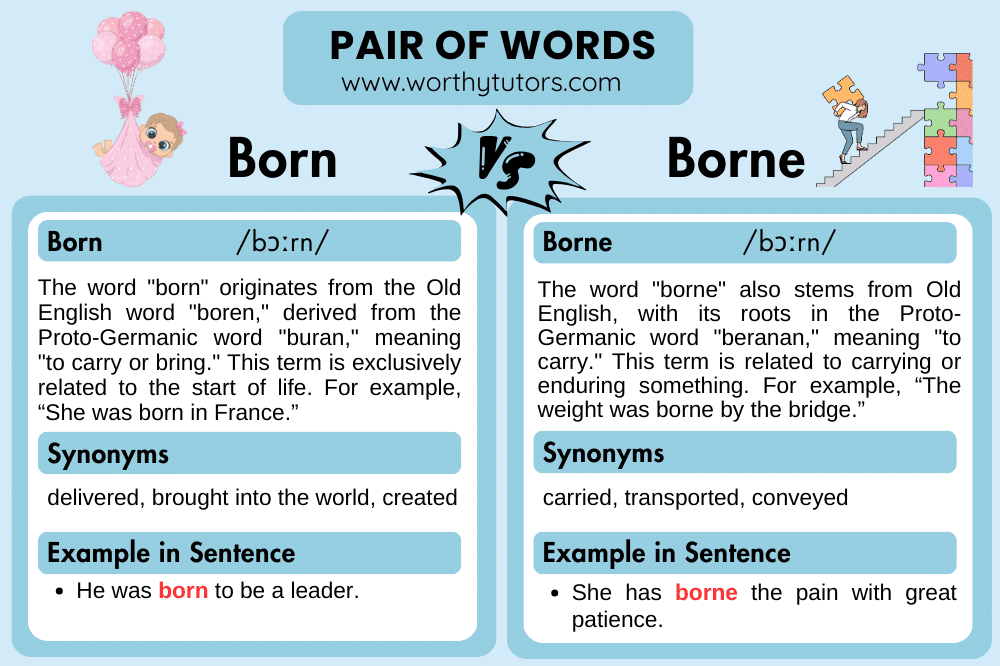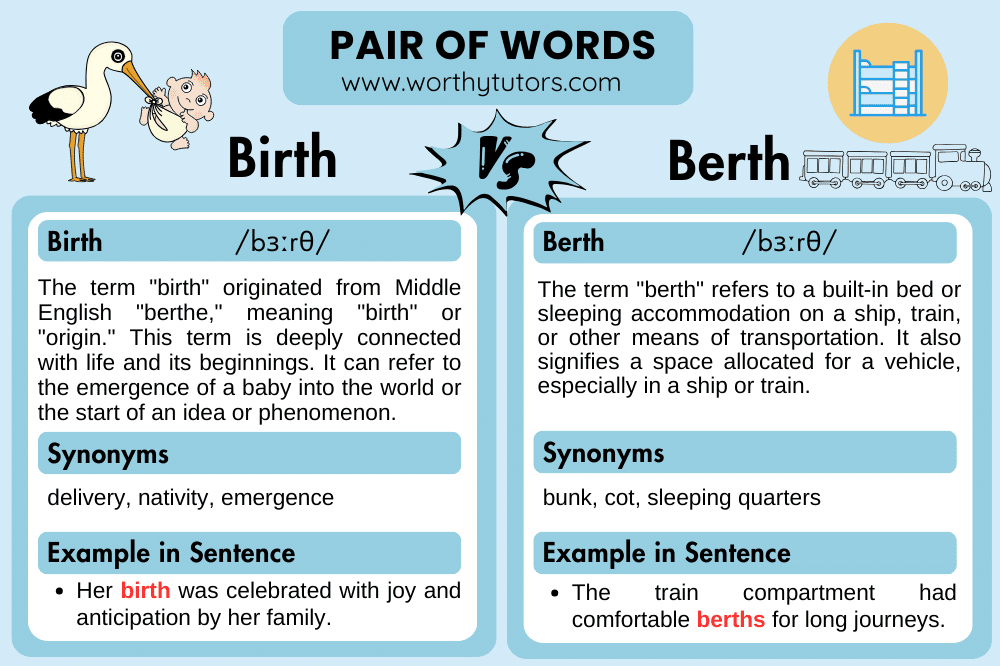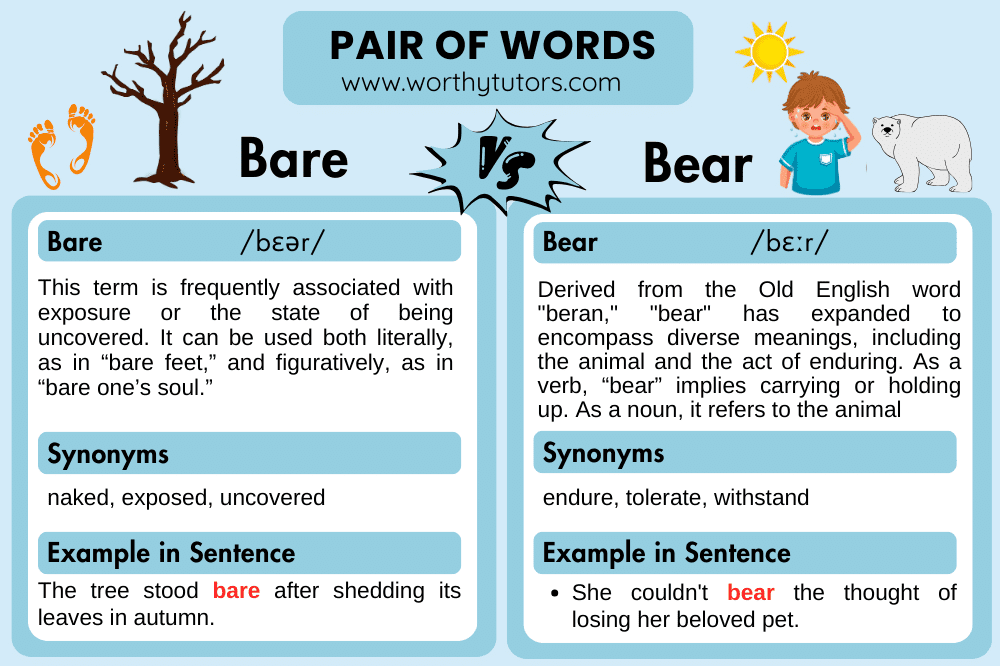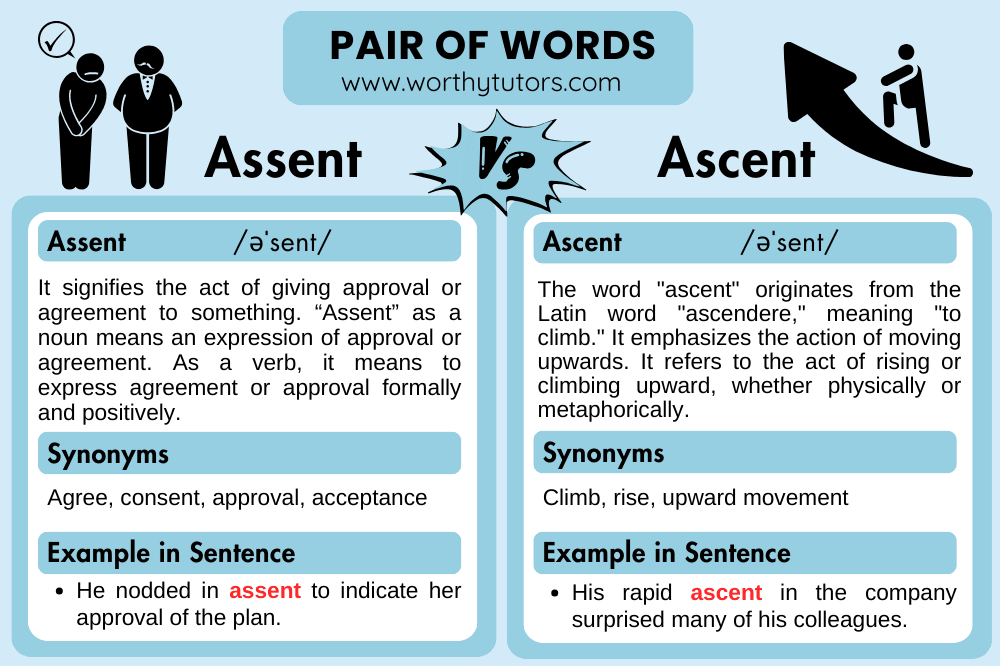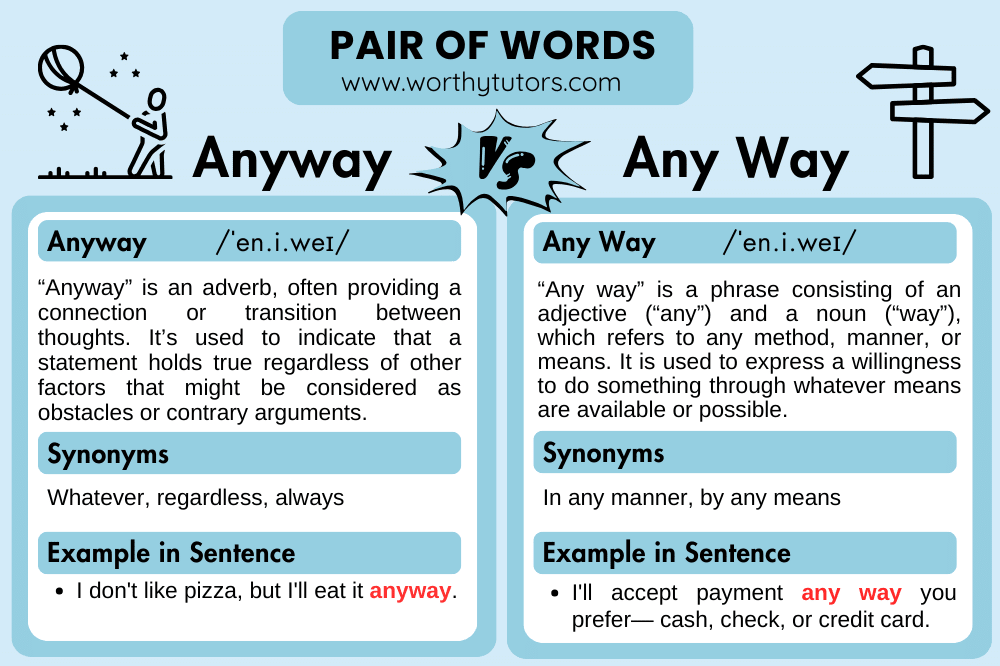Differences Between “Chord” and “Cord” In the dictionary book of English language, confusion often arises when encountering words that sound …
Read MoreVocabulary
Exploring the Difference: Compliment vs Complement
Differences Between “Compliment” and “Complement” Students often find themselves perplexed by subtle yet significant distinctions among homophones, leading to occasional …
Read MoreKey Difference Between Coarse and Course
Differences Between “Coarse” and “Coarse” The words “coarse” and “course” are homophones, meaning they sound the same when spoken but …
Read MoreExploring the Difference Between “Born” and “Borne”
Differences Between “Born” and “Borne” The words “born” and “borne” are often mixed up because of their similar spellings and …
Read MoreBirth vs Berth: Dissecting Pair of Words
Differences Between “Birth” and “Berth” Confusion often arises when encountering words that sound similar but have entirely different meanings. This …
Read MoreDifferences Between Bare and Bear | Pair of Words
Differences Between “Bare” and “Bear” The English language is riddled with homophones, words that sound alike but have different meanings. …
Read MoreDissecting Homophones | Aural vs Oral
Differences Between “Aural” and “Oral” In the vast ocean of English vocabulary, there are often words that sound similar but …
Read MoreKnow the Differences Between Assent and Ascent
Differences Between “Assent” and “Ascent” The English language is rich with words that sound similar but have different meanings. Homophones, …
Read MoreUnderstanding the Difference Between Appraise and Apprise
Differences Between “Appraise” and ” Apprise” The English language is replete with words that sound similar but have different meanings. …
Read MoreUnderstanding ‘Anyway’ vs. ‘Any Way’ | Pair of Words
Differences Between “Anyway” and “Any Way” The English language is replete with words and phrases that, while similar in sound, …
Read More